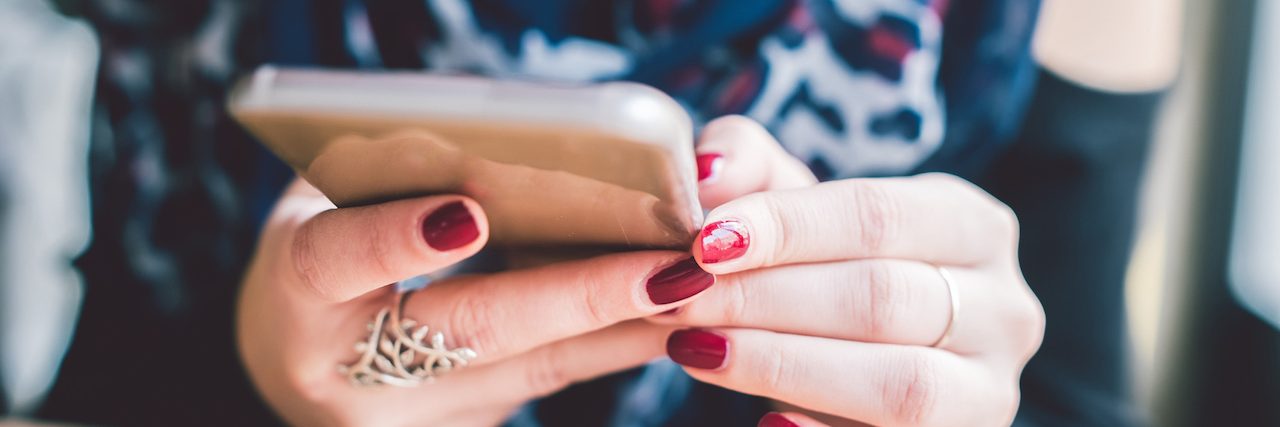Facebook Says Its Update Will Make It 'Better' for Your Mental Health. Here's What You Should Know.
Every time Facebook changes, people are quick to express their displeasure… usually by posting about it on Facebook. But Facebook claims it’s changing its platform in a way that will actually be better for your mental health — by prioritizing meaningful social interaction over brand or publication produced content.
In a post shared on Facebook earlier this month, founder Mark Zuckerburg revealed one of the company’s priorities in 2018 is making sure time spent on Facebook is time well-spent.
“Recently we’ve gotten feedback from our community that public content — posts from businesses, brands and media — is crowding out the personal moments that lead us to connect more with each other,” Zuckerburg wrote. “We feel a responsibility to make sure our services aren’t just fun to use, but also good for people’s well-being.”
In December, Facebook shared that when people spend a lot of time passively consuming information on its platform instead of interacting with people, they report feeling worse. “Actively interacting with people — especially sharing messages, posts and comments with close friends and reminiscing about past interactions — is linked to improvements in well-being,” the report added.
Using this logic, Facebook hopes that seeing more from Facebook friends you have “meaningful interactions” with, and less from brands, publications and pages, will make your time on Facebook more meaningful. A Facebook representative told The Mighty the update will be rolling out in the coming weeks.
What’s complicated about this is that everyone’s relationship with social media is different. While some people love the chance to connect with people they might not see every day — others look forward to bumping into a hilarious video posted by their favorite comedy page or seeing a non-profit they follow share an inspiring quote. And while Facebook says passively scrolling is what’s making us unhappy on its platform, it’s also true that “unflattering social comparison and envy are common experiences for Facebook users” and “envy and social comparison mediate correlations between Facebook use and depression,” according to one study.
While seeing more “friends” might open the door for more interaction, it also can make it easier to compare yourself to people who are only sharing their highlight reel — which can be tough for people struggling with depression, anxiety or any other health condition.
So in light of Facebook’s new mission, and in preparation for whatever change in our News Feed lies ahead, here are some things to keep in mind as you try to protect your mental health in 2018.
1. Cut Out Toxic ‘Friends’
Let’s face it: There are your friends, and then there are your Facebook friends. You don’t have to be Facebook friends with everybody. If you’re friends with people on Facebook who are bad for your mental health, cut them out. If unfriending isn’t an option (because it might provoke an awkward conversation), there are other ways to keep your Facebook clear of people you don’t want in your virtual life.
When you unfollow someone on Facebook, you won’t see their posts in your News Feed, but you’ll still be friends with them. If you don’t know how to unfollow someone, here’s how.
Or, if there’s someone in your life who’s particularly harmful to your mental health, blocking them is an option. When you block someone, you automatically unfriend them, but they also can’t see what you post, start a conversation with you or try adding you as a friend. Here’s how to block someone on Facebook.
You can also try Facebook’s new snooze option. Snooze allows you to temporarily mute people or pages in your feed. Right now you can “snooze” someone for up to 30 days. Here’s how.
2. Remember Facebook Doesn’t Tell the Whole Story
Like every social media platform, you can’t truly know what’s going on in someone’s life by following their Facebook posts. Even people with seemingly picture-perfect lives have their ups and downs. Just because they don’t post about it on Facebook, doesn’t mean it’s not there. Comparing your real, beautiful, messy life to someone’s Facebook life is futile. You can spare yourself unnecessary grief by being mindful that what you’re seeing is not the whole story.
If this is easier said then done, take a break from social media. Reach out to people in your life, and try to have a grace for yourself — the worth of our lives are not determined by our social media pages.
3. Learn How to Report Harmful Content
When you see a friend post something worrisome on Facebook, like an image of self-harm, or a message about a suicide plan, you can flag that post. Those posts will then come to the attention of Facebook’s global community operations team, a group of hundreds of people around the world who monitor flagged posts 24 hours a day, seven days a week. You can find how to report posts that have sensitive content in our piece here.
4. Get Content You Love Outside of Facebook
You don’t need to be on Facebook to run into content that makes you happy. Bookmark website you read often, make sure you’re following pages you love on Twitter and Instagram and sign up for inspiring newsletters. If you’re looking for more support, there are also plenty of online and in-person support groups. Here’s a list from Mental Health American to get you started.
Whether you’re looking forward to seeing more content from friends, or if the prospect makes you nervous, use social media in a way that helps your mental health — whatever that means for you.
If you or someone you know needs help, visit our suicide prevention resources page.
If you need support right now, call the National Suicide Prevention Lifeline at 1-800-273-8255, the Trevor Project at 1-866-488-7386 or reach the Crisis Text Line by texting “START” to 741741.
Getty image via urbazon

